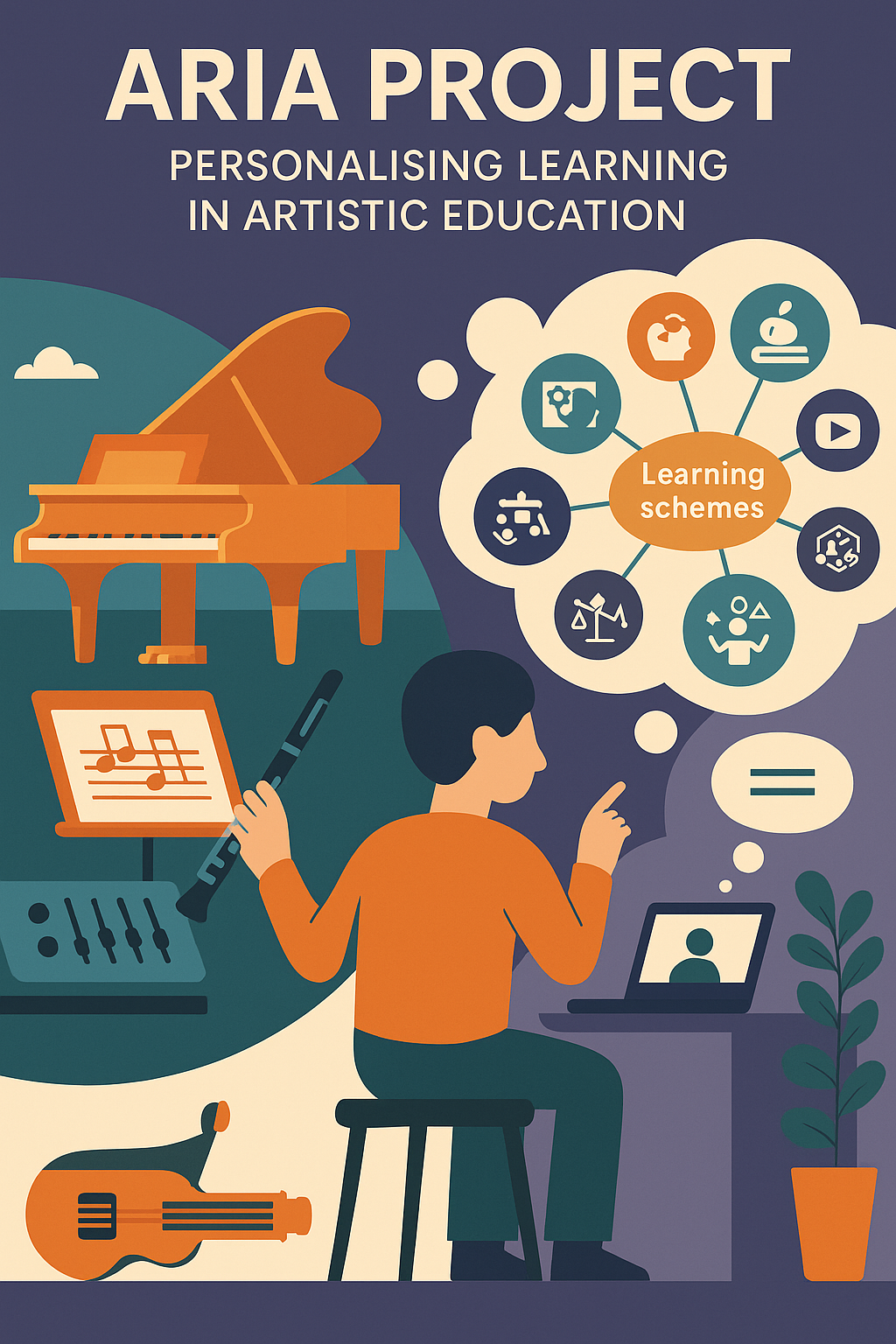Overview
The ARIA project explores how Personal Learning Environments (PLEs) can be used to support and document learning in artistic higher education. It responds to a key challenge: how to individualize and valorize project-based learning while ensuring educational quality and recognition of informal and transversal competences.
Developed in partnership with Yepa®, the project applies the MEPA methodology (Felder, 2019) to model learners’ evolving learning ecosystems. It currently involves a pilot group of Master’s students in performer-composer programs at HEM Geneva.
Objectives
- Enable students to self-reflect and design their learning environments through guided modeling and metacognitive inquiry.
- Equip students with tools to evaluate, valorize and communicate their project-based competences, especially those developed outside formal assessments.
- Support flexible curriculum design, integrated with institutional strategies for digital transformation and lifelong learning.
Methodology
The project is structured in four phases:
- Framing & Co-design (Fall 2024): defining pedagogical and evaluation frameworks.
- Pedagogical experimentation (Fall 2024): including ethnographic mapping, peer interviews, and theoretical reflection on digital strategies.
- EPA implementation & testing (Spring 2025): students use their modeled environments to guide their Master project work.
- Analysis & Knowledge Transfer (Summer 2025): including synthesis reports and pedagogical frameworks for broader institutional use.
The EPA modeling is done using the Yepa® platform, which supports reflective learning through visual and conceptual structuring of one’s learning tools, strategies, media, social actors, and values.
In Progress
The ARIA project is currently in development. Results from this initiative will contribute to:
- The HEM’s ongoing Master program revision,
- Broader implementation across other departments,
- Possible synergies with the Innosuisse LX-Factor project (AI-supported EPA design),
- Open-access resources for the Swiss higher education community.
